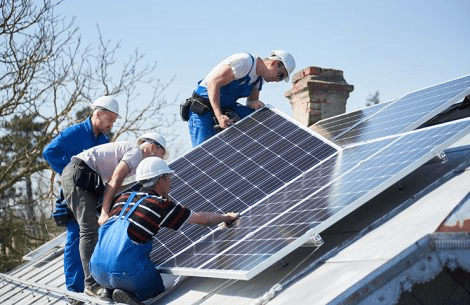A study about the Spanish consumers’ attitude and knowledge to face climate change

A study commissioned by ENGIE Spain and carried out by GAD3, in collaboration with IE University and its Center for Sustainable Cities , shows that more than 90% of Spaniards say they are willing to change their habits in order to combat climate change. The survey conducted by GAD3 focused on climate change, adopting new habits, the economy and government policy. The survey results were then cross-referenced with data on gender, age group, habitat size and location—whether urban or rural.
IE University's Center for Sustainable Cities has prepared a White Paper interpreting this data, which highlights how "Spanish consumers have the attitude and knowledge to face the challenge of climate change.” In addition, the study proposes an evolution from consumers to responsible citizens, which is key to understanding the role that companies such as ENGIE can play in the ecological transformation.
Key conclusions of the White Paper
The dissociation between awareness, knowledge and habits.
The survey reveals a dissociation between information on climate change, environmental awareness and sustainable habits. In other words, more information on climate change does necessarily translate into increased sustainable habits. This asynchrony between knowledge and habits confirms the gap between behavior and consumption that numerous studies have identified.
The relationship between the causes and effects of climate change.

Moreover, 74.5% of Spaniards not only say they are informed about climate change (15.8% describe themselves as very informed, with 58.7% fairly well informed, but that they can make connections between the causes and effects of climate change.
However, despite the fact that more than half of global Greenhouse Gas (GHG) emissions are directly or indirectly linked to human behavior (IPCC, 2018), few of those surveyed felt personally responsible, blaming industry instead, along with polluting vehicles, deforestation and fossil fuels. Only 13% of respondents said individual behavior was a major contributing factor to climate change, pointing to a clear lack of co-responsibility on the part of the Spanish population, which can be associated with multiple factors.
This should not only be understood as an area for improvement, but also as an opportunity for other economic sectors governments to act as catalysts for a process of change that promotes more sustainable habits.
Building a new relationship with nature based on a change of habits.
The changes adopted by Spaniards to reduce their impact on the environment are mainly based on using plastic less, improving selective garbage collection and alternative transportation and mobility options. Young people see a greater impact on vehicles than on industrial emissions, due to changes in habits and consumption that mean younger people are not buying cars. An important takeaway from the survey is that Spaniards, especially young people, are willing to pay more for sustainably produced goods.
COVID has changed our relationship with nature, with our habits, as Henri Lefevre proposed, acting as mediators between society and nature.
The transition to a green economy as an opportunity to improve the environment
While Spaniards believe that the main measures to increase sustainability in industry and cities are related to energy, they also say the energy sector should lead the ecological transition.
The survey reveals that many people in Spain want to see government and business lead a change that they are slowly starting to undertake individually.
Finally, the results of the survey offer a clear opportunity for companies in the energy sector to listen to what consumers are saying and to help implement the change that will allow Spaniards to make the transition from consumers to citizens.